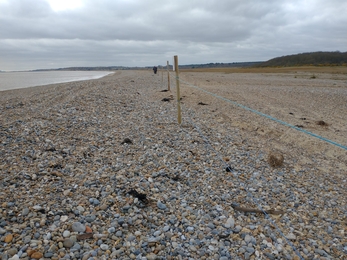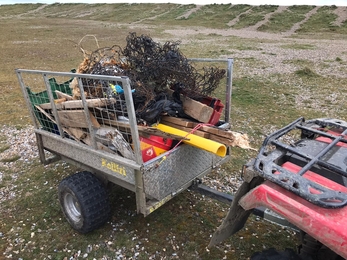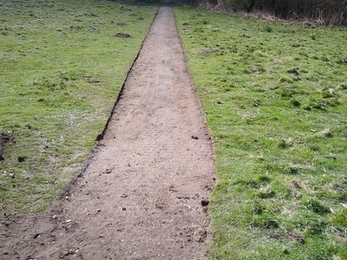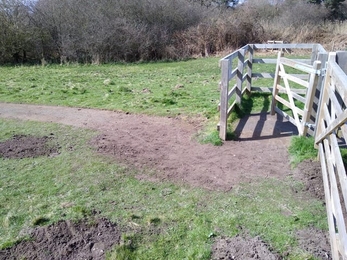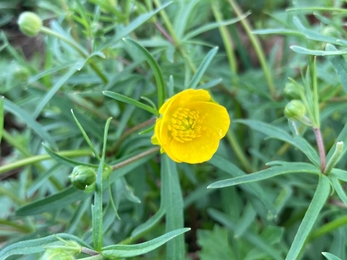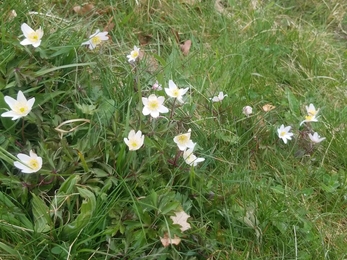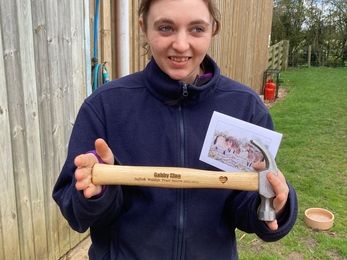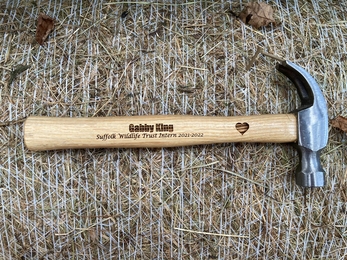Weekly wild news from our reserves - 8 April 2022
Wood anemones - Gabby King
Our North East Reserves Team collaborated with RSPB and Natural England to erect temporary fencing along Dunwich Beach at Dingle Marshes. The rope exclusion fence is designed to deter people from entering the sensitive nesting areas on the beach. Bird species nesting will be mainly ringed plover, but we also hope to see avocet, redshank and perhaps even a little tern colony. During the day Dunwich WI and local villagers kindly volunteered to do a litter pick along the shoreline. Fifteen bags of rubbish were collected, which took three trips with the quad and trailer to remove. Fantastic work by all!
It is extremely disappointing that our coastlines and wildlife are blighted by such extensive pollution and littering. Find out about plastic pollution and our Ocean Impact Investigators Project here https://www.suffolkwildlifetrust.org/news/ocean-impact-investigators-project .
Where you see these areas roped off, please keep dogs on leads and don’t let them stray into the protected nesting area. Ringed plover are hard to spot and are especially easily disturbed and may abandon their nests and even their chicks. The photo below taken last summer at Shingle Street shows how vulnerable and tiny the chicks are.
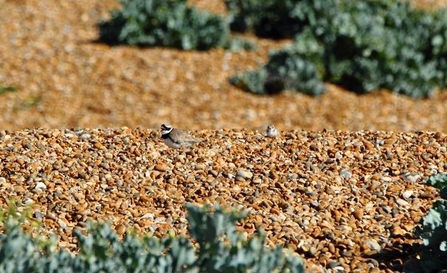
Ringed plover with 3 chicks at Shingle Street beach (photo: Andrew Excell)
New bike racks
Our brilliant team of volunteers at Carlton Marshes installed further new cycle racks at the visitor centre this week. We hope this will make it easier for visitors to use pedal power and public transport when visiting the reserve.
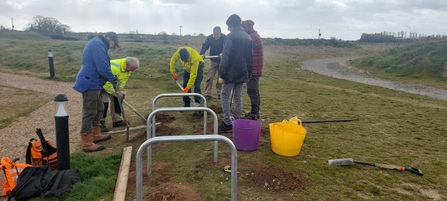
Carlton Marshes volunteers installing new cycle racks - Gavin Durrant
Who's watching who!
This elegant fallow deer doe was keeping a watchful eye on Lound Lakes warden Andy this week! Although introduced by the Normans, fallow deer have been here so long that they are considered naturalised. Look out for groups of white-spotted deer in woodland glades. Although they are mostly pale gingery-brown, with white spots on the back, some animals are darker brown without any spots, and others are very pale, almost white.
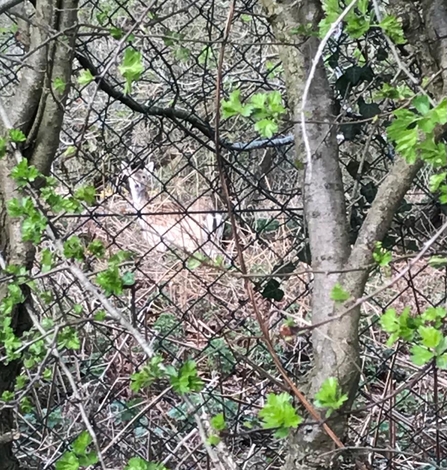
Fallow deer at Lound Lakes – Andrew Hickinbotham
Path improvements continue
More excellent work from our invaluable volunteers! At Lound Lakes the path and kissing gate access has been improved and levelled. The team laid a reinforced erosion grid and covered it with loose soil, which will be scraped back once compounded by foot traffic.
Spring beauties
Beautiful early spring flowers are appearing at Mickfield Meadow. Goldilocks buttercup is the first buttercup to flower and can be identified by the long narrow leaves at the bottom of the flower stems, and also the downward pointing yellow sepals beneath the petals. Clusters of wood anemones are also looking glorious at the meadow. As its name suggests, the wood anemone usually grows in dappled shade in ancient woodlands where coppicing helps the flowers by opening up the woodland floor to sunlight.
A sad farewell
The South Suffolk Team are sorry to say goodbye to our lovely intern Gabby King, as it is the last day of her six-month placement today. They had obligatory leaving cake and presented her with this very apt leaving gift. Gabby has an extremely exciting next placement working on a turtle conservation project in Costa Rica! We wish Gabby all the best and hope to be working with her again in future.


